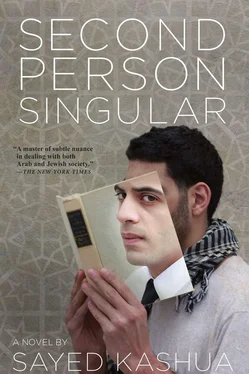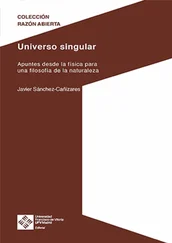On most narghile nights the main topic of conversation was girls. Majdi, who loved all kinds of girls, was full of stories about those he met at the hotel, at work, and on the bus. He liked talking about girls, especially the pretty Russian ones who worked with him at the hotel and the tourists who made eyes at him over their dinners. Wassim contended that he made it all up, that every single detail was false and that from what he could tell Majdi was on the fast track to becoming the most flagrantly lying lawyer in the country and that God should have mercy on his clients. Wassim, for his part, had a girlfriend. Or at least a sort of girlfriend. She was from their village, had studied education in school, and had gone back home after college. Wassim had never spent a minute alone with her, nor could he call her, because her parents or brother might answer the phone. But they loved each other, and it was clear that they would soon be engaged to be married.
“You’re missing out on life,” Majdi would say to him, “you should get the most out of the city before you lock yourself up in the village.” His advice, of course, was not heeded. Wassim was the exact kind of guy who would stay true to his love and marry the honest, shy girl from the village whom he had never so much as touched. “So long as her parents don’t give me too much grief,” he would say. “Her father is very rich. He has an electronic appliance store. And what am I? A teacher. .” Without a house in the village, there was no point in even discussing marriage. That was one of the reasons Wassim was still in Jerusalem. He wanted to save as much as he could before heading back home. That was also why every cent of the rent was painful for him to cough up. He managed to put away a salary and a half, but neither of them was substantial.
Majdi was more of a high roller. He earned a lot less than Wassim — interns got minimum wage — but he treated himself to new jeans and new shirts, and the money he did put away was earmarked for a new car. That was the other topic of conversation — cars. A BMW was the ultimate vehicle. It’s not the most expensive, Majdi would say, but it’s a beast on the road. In the meantime, he had his sights on a Volkswagen Golf, an ’84 or an ’85.
“Maybe you should get a second job,” Wassim said to me one night, the night that led me to Yonatan. “Maybe you should get a girl,” Majdi added, but Wassim ignored him. “There’s this one job,” he went on, “I don’t know if it’s still available but if it is, it would be perfect for you. The shifts are evening and nights, I think.” Wassim told me about Ayub, a teacher in his school who was about to get married and would have to give up the night shift. I remember Wassim saying, “You don’t have to do a thing, absolutely nothing. He takes care of a kid, in the kid’s house. The kid has some kind of problem, I’m not exactly sure what the technical name for it is, but if you want, I could ask Ayub tomorrow. All I know is that Ayub works nights and he doesn’t lift a finger. He says he sleeps better there than he does at home.”
“Okay, sounds good,” I said, not meaning it at all.
SCOUT
I waited for Ayub at exactly six p.m. at the bus station opposite Damascus Gate, just as Wassim had told me. Ayub showed up at six fifteen. I spotted him as he darted across the street that divides east from west. He was wearing a thick gray sweater and a heavy jean jacket that was lined with fake sheepskin. A backpack hung off one shoulder. “You’re the guy?” he asked before extending a hand. “Sorry I’m late. The road was backed up, some kind of accident or something, but don’t worry, we’ll make it on time.”
Ayub said that he usually took a share-taxi from Issawiya, where he lived, to Damascus Gate and that from there he walked down to Jaffa Road, some ten minutes away, and took the 27 bus or the 18, which went down Herzl Boulevard, leaving a short walk to Scout Street. But since it was really cold he suggested we take the bus to Jaffa Road. “I don’t mind walking,” I said, but Ayub said he didn’t want to be late, and just as he said that a bus nosed into the stop.
I got on ahead of him and bought two fares. The bus was practically empty. We sat toward the back and Ayub started telling me about himself and about the job. He said he was a special-ed teacher and that he had studied at the David Yellin College, which was no simple feat because he had a Jordanian matriculation certificate. “But I played it right, because I knew that the only thing I’d be able to do with a teaching degree from the West Bank was to wipe my ass, so I spent the year after college working on my Hebrew, then I took a prep course and got in to David Yellin. Of course, Birzeit and Bethlehem Universities are a thousand times better than David Yellin, but what’s a Jerusalem resident going to do with a degree from there? Everything here’s Israeli.”
When he decided he needed someone to take his night shift, he considered offering it to his cousins. They sat at home all day long and did nothing, but Wassim had recommended me really strongly, and Wassim’s a hard person to say no to. “Wassim’s a great guy,” he said. “He’s got a heart of gold. It’s hard to find people like him these days. Anyway, he told me a lot about you.” He also knew they wouldn’t take just anyone for the job. “They want a quality person, someone who knows Hebrew, too, and someone who has some kind of background. Someone who studied special-ed or nursing, but social work is good, too. It’s different, but it’s still about caring for others.” And anyway, he explained, there’s a registered nurse there all day long. “We’ll meet her in a second. She’s a good person, precise, goes by the books, but good. Her name’s Osnat.”
We got off the bus on Jaffa Road. Ayub waved me into a run as he sprinted toward the 27 bus, which was already at the stop. The bus was packed and there was nowhere to sit. There was barely anywhere to stand. Ayub, who up until then had been speaking in Arabic, switched to Hebrew — which he spoke with a heavy Hebron accent — and he did it naturally, as though it were the most obvious thing in the world. I didn’t know how to respond, in Hebrew or Arabic, so I held my silence. “The most important thing,” he said to me, “is to show her that you care about people. Be sympathetic. You know, interested. And don’t get freaked out when you see the kid. Just treat him like a normal person. He’s handicapped, but he’s still a person. His name’s Yonatan.”
Ayub told me that Yonatan was twenty-one or maybe, now that he thought about it, twenty-two, because more than a year had gone by since he started working there. Before that he’d worked at a home for mentally disabled adults, in addition to his job as a teacher. The home was where he met Osnat, the nurse, who came once a week to instruct the caregivers on how to treat the residents. The two of them got along well and one day she asked Ayub if he would be willing to take the night shift with Yonatan. “Working at the home was so different,” he said. “This job’s a breeze. You don’t have to do a thing. Yonatan sleeps through the night. All you have to do is rotate him a little bit every two hours. Turn him onto his back, his right side, his left side. That’s it. The rest of the time all you do is sleep, and no one cares. The mother’s out to lunch, doesn’t know what’s going on. Poor thing, she’s a good person, too. All she has is Yonatan. She lost her husband, not sure how, but he’s gone. Maybe she’s a widow or a divorcée, I’m not really sure what her story is. The best thing is not to ask. Why complicate things, that’s what I say.”
Ruchaleh, the mother, was some kind of doctor. Maybe of sociology. She worked up at Hebrew U and was a real lefty. So Osnat had told him. And Osnat, Ayub said, was also in favor of some kind of peace deal, which meant that the two of us should get along.
Читать дальше












